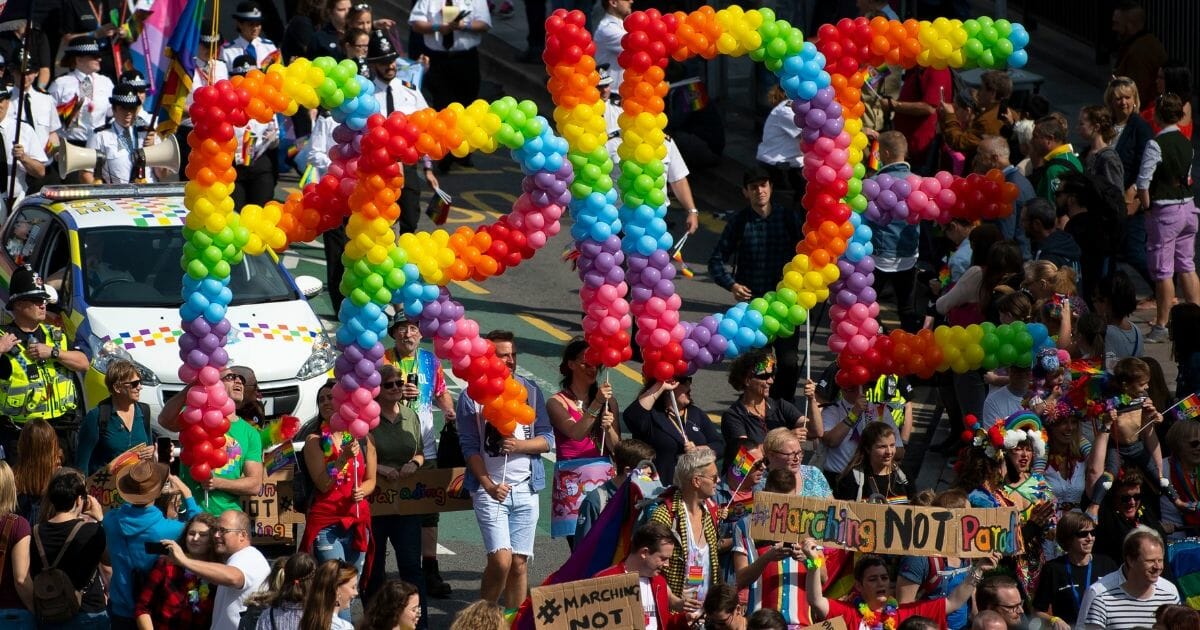
Study Finds LGBTQ Acceptance in 'Toxic' Decline
A new poll shows that the youngest Americans are becoming less and less accepting of the LGBT population.
Every year, the Harris Poll partners with the Gay & Lesbian Alliance Against Defamation to produce what it calls the American Acceptance Index.
This year’s report found that Americans aged 18 to 34 who the report could call “allies” because of their overall acceptance of LGBT individuals fell sharply.
Only 45 percent of those surveyed who were 18-34 and not LGBT were labeled allies. That represents the second drop in two years. The 2016 survey of attitudes found 63 percent were listed as allies. That fell to 53 percent in 2017.
Among women, the share of respondents who were allies fell from 65 percent in 2016 to 64 percent in 2017 before taking a big dip to 52 percent in 2018. Male respondents fell from ally status even faster after the initial survey. The 2016 survey showed 62 percent of respondents as allies. That tumbled to 40 percent in 2017 and nudged further down to 35 percent in 2018.
“We count on the narrative that young people are more progressive and tolerant,” John Gerzema, CEO of the Harris Poll, told USA TODAY. “These numbers are very alarming and signal a looming social crisis in discrimination.”
Gerzema also blamed the current social and political climate for the erosion in support of LGBT individuals, citing “mean tweets.”
“Our toxic culture is enveloping young people. It instills fear, alienation, but also permissibility,” Gerzema said, that sways what he called “impressionable” young minds.
“In this toxic age, tolerance — even among youths — now seems to be parsed out. Nothing today should be taken for granted,” he said.
The report asked respondents their reaction in a number of situations. One question asked if respondents would be uncomfortable knowing a family member is LGBT. In 2016, 24 percent of respondents said they would be uncomfortable. That rose to 29 percent in 2017 and 36 percent in 2018.
In 2016, having a child placed with an LGBT teacher made 25 percent of respondents ages 18-34 uncomfortable. Since then, the number has risen — to 29 percent in 2017 and 33 percent in 2018. The same trend was true with having an LGBT doctor as well, with the level of those uncomfortable with that starting at 24 percent in 2016 before rising to 27 percent in 2017 and 34 percent in 2018.
The situation that posed the greatest level of discomfort was having a child be given an LGBT history lesson in school. In 2016, 27 percent of respondents were uncomfortable with that. That rose to 30 percent in 2017 and 39 percent in 2018.
GLAAD president and CEO Sarah Kate Ellis said the poll numbers reflect the fact that younger Americans interact with more LGBT individuals and a more diverse blend of LGBT populations, but have difficulty understanding them.
“This newness they are experiencing could be leading to this erosion. It’s a newness that takes time for people to understand,” she says. “Our job is to educate about nonconformity.”
She said that GLAAD will take its pro-LGBT message on the road, target young women at country music concerts.
The new poll noted that regardless of personal discomfort, 80 percent of those responding support equal rights for the LGBT population, a rise of one percentage point from the previous two years.
Truth and Accuracy
We are committed to truth and accuracy in all of our journalism. Read our editorial standards.
Advertise with The Western Journal and reach millions of highly engaged readers, while supporting our work. Advertise Today.












